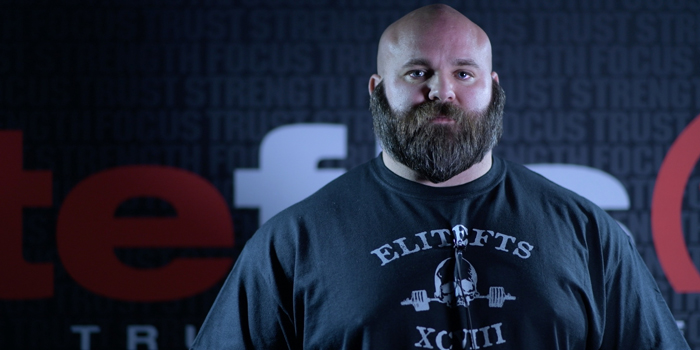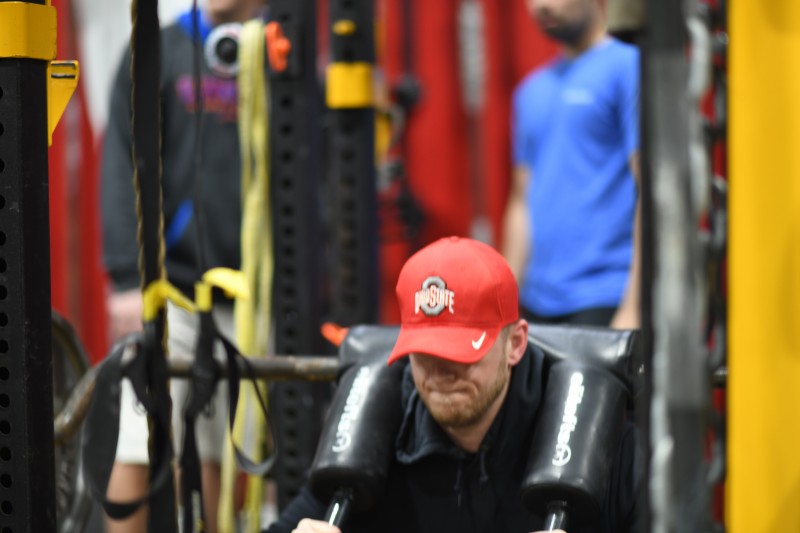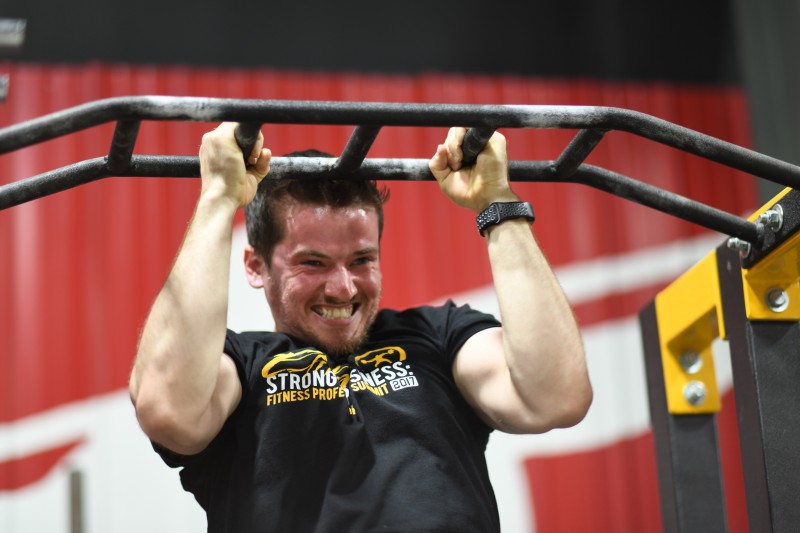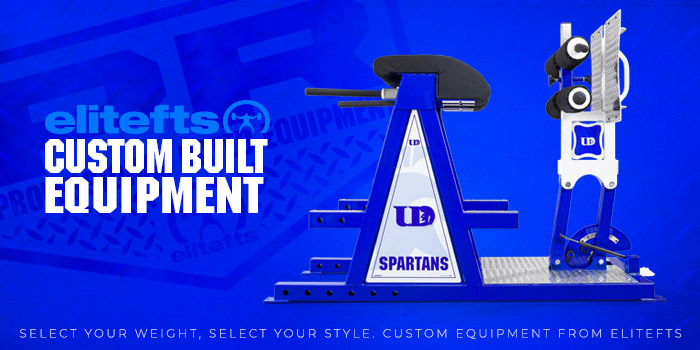
“Back in my day….”
“When I was playing….”
“In my era….”
Ah, the good ole days. Everyone seems to have some sort of story of how it used to be. And most of the time, the reminiscence of how it used to always seem to be better than how it is today. You didn’t get away with this, there weren’t as many distractions, kids just don’t act the same, etc. How about you stop reminiscing, pull your head out of your ass, and stop reliving the good ole days? Your time is over, and it’s someone else’s time. Nobody cares about how it was except for you and your age group.
I hear it all the time: “Kids today... blah, blah, blah.” I hear it from coaches, parents, administrators, etc. Yes, today is different, and maybe how you have to conduct yourself is different today than what you had to 20 years ago, 10 years ago, yesterday. From my point of reference, are athletes different today?
RECENT: So You Want to Be A Collegiate Strength Coach: The Pros
No, I really don’t think fundamentally they are other than the fact that physically, we are advancing as human beings. You have some athletes who want to give it everything they have. You have some athletes who are happy just playing the sport and being as good as they are. You have a few who are shit heads and don’t care at all. It sounds about the same as it was “back in the day.”
So, why do we still have a bunch of pissed-off older generations that think kids just don’t get it today? Perspective! I guarantee that your parents said the same thing about you and the younger generation coming up, as did your grandparents, and so on. Every new generation is made up of a naive, reckless bunch of slackers that don’t care. They have the world handed to them on a platter. “I remember having to walk to school uphill both ways in the winter, carrying my younger siblings on my shoulders.” I’ve heard that too many times.

So, at least from an athlete’s perspective, why do coaches think that their athletes just don’t get it today, don’t work as hard, or are too sensitive?
I like to believe that most coaches at one point in time were better than average players. They probably tried hard (hopefully) and pushed themselves to become successful. They might have had coaches who pushed them hard and rode their butts if they didn’t give it their all. If these coaches were once players who didn’t have a problem with working hard, getting yelled at, and pushing themselves without always having others looking over their shoulders, then they would have that same perspective and same expectation of the players they coach.
But you have to remember that not everyone is built the same. Not everyone thinks the same. Just because you pushed yourself hard doesn’t mean that everyone else had or has that same drive you did.
I remember when I first took on being a strength coach. When I was growing up, I loved lifting. I loved the sports I played. I didn’t need to be pushed. I didn’t need someone looking over my shoulder. I’m very much internally motivated. I could take an ass chewing when I didn’t do the right thing. This is how I was wired. So, that was my expectation when I first started coaching.
Those who didn’t rise to that expectation were lazy. I would ask myself and the athlete, “Why don’t you try harder?” “Why do I have to get on your butt to do things?” I just didn’t get it because I thought everyone had to be like me. I mean, they are in college playing a college sport. They might be on a scholarship, so they have to love this, right? And sometimes, I took it personally when they would not meet my personal expectations. I would get pissed, frustrated, and butt-hurt occasionally. I just didn’t get it.
It took me some time to figure it out, but I did. The expectations I had and have for myself can be different from those whom I coach. Not everyone is wired the same. Not everyone loves the weight room. Not everyone loves his or her sport. Not everyone loves the mornings.
RELATED: Off-Season Conditioning Lanes
It sounds so simple, like duh, how did you not realize that? Well, I grew up differently and had different expectations put on myself. Again, I like to believe that those who coach and lead had those same high expectations for themselves, so we just don’t understand why those we coach don’t all think as we did and do. We are the ones who need to change.
So, how did I change? Did I stop expecting excellence? Did I stop caring about the athletes and their success? No. I still carry high expectations for athletes who are recruited and who are committed to playing at the next level. What I did do is stop putting my values on each athlete I coached. You need to be able to learn how to effectively communicate your expectations of the program. Make the expectations clear cut and communicate what happens if the expectations are not met. Treat everyone fairly across the board. Be as consistent as possible.

Starting from Day 1, I communicate my expectations clearly as well as what happens if expectations are not met so that nothing comes as a surprise to my athletes. My expectations fit those of their sports programs. The expectations are simple and not personal; it’s just business.
My attitude is consistent every day. If the team works hard, I’m laid back. If the team doesn’t work hard, I’m hard until that level of effort is brought back up. I treat all athletes with respect and communicate with them like grown-ass adults. Everyone is treated fairly. There is no such thing as equal, as everyone is not created equal. Some individuals you can ride because they thrive with it. Others need to be treated with a gentle hand because they thrive with that. You need to be able to read these things to be effective at your job in any arena.
Almost 99 percent of the athletes I have worked with appreciate how I approach coaching. There will always be a few who do not get it, and those are the ones you do not worry about. You cannot reach everybody.
Human beings are human beings. Nothing has really changed. No one is getting softer, per se. Everyone has a different perspective on life and how he or she was raised. Some have more things than others. There have always been those who have and those who have not. There have always been the rich and the poor. There have always been sensitive and thick-skinned. There have always been support and no support.
At the end of the day, we are a product of how we were reared. What I have found is that when you communicate clear expectations, stay consistent with those expectations, keep your personal life separate from business, and treat people with respect, you receive great results from that.
Not everyone is you. Not everyone has your value system. Understanding that and accepting it gives you a whole new perspective with coaching.
There is not a “back in the day.” Today is today! Get over it.











Thank you,
John
I don't think you were able to understand what I wrote so let me simplify. My expectations haven't changed, but I do NOT expect them to be wired like me. I'm wired to kick ass and I'm not sensitive. Does that mean everyone else is like that? No. Does that mean they are lazy? No.
Expectations stay the same. How you achieve those can be flexible. If you are not flexible you will be out soon enough.
Interesting you know these high level coaches and how they are. I guarantee you one thing, they have all adapted to the ever changing social culture. I guarantee their expectations haven't dropped but I doubt they go about their coaching as they always have.
Also, you are speaking about they top guys, sport coaches. I'm a strength coach. Where my philosophy will match the sport coach for the most part my job is highly replaceable. We sit at the bottom of the food chain.
Adapt and overcome or die out. Nobody is irreplaceable.